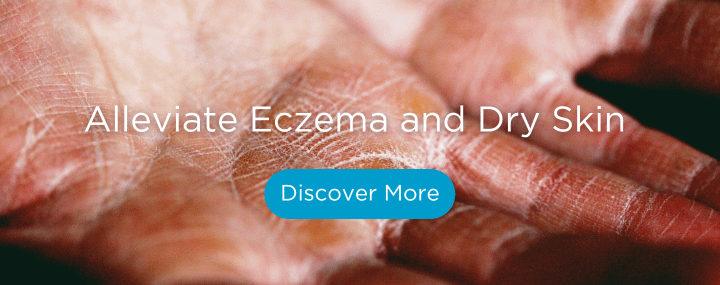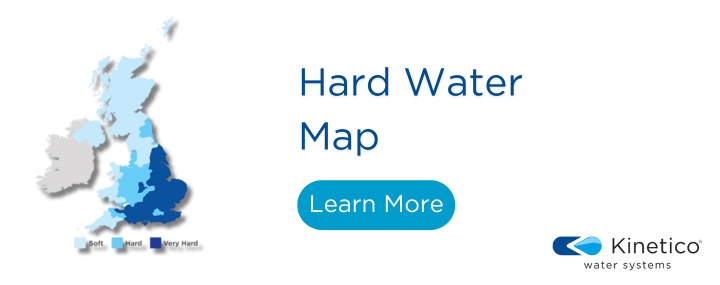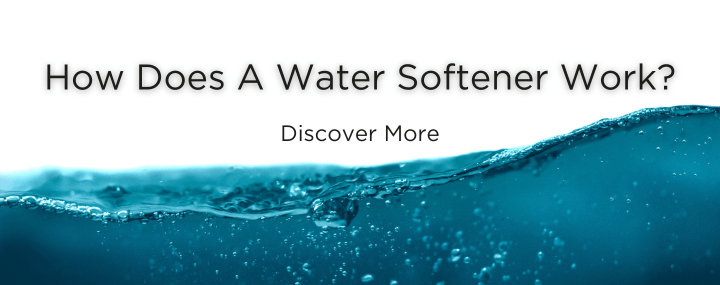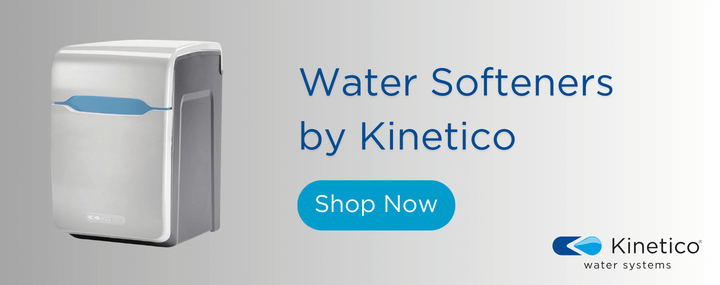
Eczema is a common condition that causes itchy, cracked, and sore skin, affecting around 1.5 million people in the UK today. In this guide, we’ll explore how installing our Kinetico Water Softener System in your home can help treat this uncomfortable condition and how soft water can help those suffering from eczema to living happier, healthier lives.
Does Soft Water Help Eczema?
So, is soft water better for eczema, and can it relieve its symptoms? Studies conducted by King’s College London and the University of Sheffield reveal that exposure to hard water damages the skin barrier. This reduces its ability to defend against bacteria and sunburn effectively and heightens skin sensitivity - which can contribute to developing skin irritations like eczema.


At Kinetico, we also carried out an independent trial with 23 families who had our water softener installed in their house, and this is what we found:
- The severity of eczema symptoms was reduced in 83% of participants.
- 91% recorded less itchiness.
- 96% noticed smoother skin and softer hair.
- Of the 78% of participants regularly using emollients or steroid creams.
- Nearly 70% said they were using less to control their symptoms.
The feedback we received was substantial evidence to show the impact of soft water on eczema and how it can help reduce symptoms the condition creates. One customer, Miss Ward, wrote to us to say, “My son has had eczema since he was 4 weeks old, and it was very severe. We had our softener installed, and now he’s a different child. I am sure the soft water has helped his symptoms, as we had to use ‘normal’ (hard) water for two weeks when we had a flood. His skin became dry, cracked, and sore, and the itch was so intense it was reliving the nightmare again. Our Kinetico water softener is a light at what can seem a very dark, endless battle to win.”
Another new study, conducted by Guy’s and St Thomas’ Hospital, London, will examine whether soft water can prevent the onset of eczema in babies.
Professor Flohr, who is carrying out the research, previously led a study in 2016 involving 1,100 babies, which showed that those living in hard water areas had up to an 87% increased risk of eczema compared with infants in soft water areas. If you’re unsure of whether you live in a hard water area, our hard water map can help.


Due to our discoveries and the findings of Guy’s and St Thomas’ Hospital and King’s College, we believe that installing a water softener can greatly improve the symptoms of eczema. Soft water also holds great potential in preventing eczema from developing in the first place for those who haven’t yet experienced the skin condition.
At Kinetico, we are committed to improving the water quality of homes in hardwater areas across the UK. If you’d like to learn more about how our water softeners can help eczema sufferers, watch the positive outcome of another case study, Dylan, aged 3, below:
How Exactly Do Water Softeners Help Eczema?
Installing a water softener is a great way to minimise the risk of skin irritations and conditions and prevent their onset. But how do they actually work? Water softeners can ease the symptoms of eczema by addressing the mineral composition of your home water. Hard water is naturally abundant in skin-aggravating minerals, such as calcium and magnesium, increasing the probability of eczema and contributing to dry and dull hair, acne, and limescale buildup. You can learn more about this in our previous guide below.


Water softeners use an ion exchange to remove these excess minerals, preventing skin irritation and fostering a more skin-friendly environment. This process results in smoother skin and soft hair and reduces the likelihood of eczema flare-ups. By eliminating the harsh effects of hard water, water softeners become an ally in promoting overall skin health.
How Can I Prevent Eczema?
Although many factors contribute to one’s eczema, such as genetics, immune system, and diet, “it is during the first few days and months of life that our skin is most susceptible to damage and most at risk of developing eczema”, says Dr Carsten Flohr from St John’s Institute of Dermatology.


So, if eczema runs in your family, putting you at higher risk, we recommend installing a water softener, as this could relieve the symptoms.


For more information on eczema, visit the National Eczema Society’s website.
Feature image credit: Niels Olson under CC BY-SA 2.0 DEED





